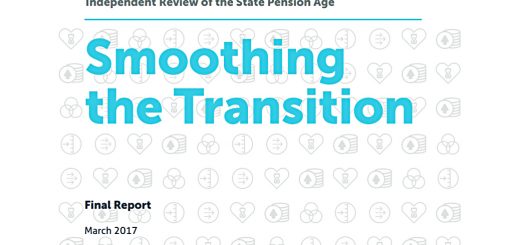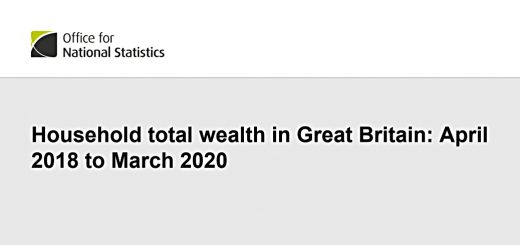Protecting pension savers

Today’s post looks at a government paper on the impact of the Pension Freedoms enacted a few years ago.
Protecting pension savers
The 73-page report comes from the Work and Pensions select committee and is called “Protecting pension savers – five years on from the Pension Freedoms: Accessing pension savings”.
- Parliament has changed quite a lot since the Freedoms were enacted in 2015, and I’m not expecting much from the Committee.
The Committee thinks that the Freedoms have been a success on balance, but that many savers need more support than they are getting.
The Pension Wise guidance unit is seen to offer a good service, but not enough people use it.
- They recommend that appointments with the Pension Wise guidance service should be automatically made on behalf of prospective retirees.
The Committee also thinks that making pensions simpler (a stated Government intention) is a good idea, but that some recent changes (such as the increase in the minimum pension age from 55 to 57) are having the opposite effect.
Stephen Timms, chair of the committee, said:
From the introduction of auto-enrolment through to the continued shift from defined benefit to defined contribution schemes, the pensions landscape is in a constant state of change. It’s little wonder therefore that people struggle to navigate the pensions minefield.
We know that those who use Pension Wise find it useful and often make different choices as a result. Every effort should be made to boost its use.
Without intervention to drive up dramatically the numbers receiving advice and
guidance, savers will make poor decisions – and, in far too many cases, become scam victims – and the pension freedoms, far from living up to their name, will instead trap people in an increasingly confusing web of complexity.
Recommendations
- A target of 60% of people using Pension Wise (or an IFA) should be set.
- Currently, 14% of DC pensioners use Pension Wise.
- Automatic Pension Wise appointments either at age 50 or on first access of the DC pot.
- The annual limit of £500 on the Pension Advice Allowance (which allow money from the pension pot to pay for advice) should be removed.
- IFAs will love this one.
- An annual review of progress on pension freedoms to evaluation their success.
- It’s not clear what the criteria for success would be.
- There should be research into how the 25% tax-free portion of a pension pot could be “decoupled” from the rest of the pot.
- The existing arrangements seem fine to me – you can draw from the 25% without touching the 75%, or you can access both together.
- The FCA should look to increase the number of people taking a “mixture of retirement products” (by which they mean annuities are well as drawdowns).
- The freedom not to buy an annuity was the key gain from the 2015 Freedoms, so this is a backwards step.
- I remain of the opinion that annuities are of poor value – at the time of writing, a 60-year-old taking an index-linked annuity would receive a yield of 2.1% pa in return for handing over their entire pension pot.
- The development of collective defined contribution (CDC) schemes should continue.
- I think these schemes offer the worst features of DB and DC schemes.
- Pensions dashboards should be properly resourced, but transactions through dashboards should not be allowed until they are “well established”.
- We’re also going to get another guidance service to help us “engage” with the dashboards.
- Pension schemes should not be required to send out annual statements.
- A “midlife MOT” for those in their 40s to 60s should be introduced.
- More consultation between the Pensions Regulator and the Financial Conduct Authority to avoid differing regimes for different types of pension.
Reaction
Becky O’Connor, Head of Pensions and Savings at interactive investor, said:
People now have power over their own pensions, whether they want it or not. The fate of their own retirement savings is a lot for individuals who may not be used to making big decisions with huge pots of money.
It’s not surprising so many retreat to the safety of ‘cash first’, which comes with its own risks, particularly in times of high inflation. Interactive investor’s own research suggests a significant knowledge deficit – 48% of people don’t know what the charges are on their pension.
The lack of engagement is a legacy of the defined benefit pension world, when pensions were done to you and you didn’t really need to be engaged. But this is not fit for a defined contribution world, where pensions have to be done ‘by’ us.
Phil Brown, Director at B&CE, provider of the People’s Pension, said:
More must be done to help savers understand risks such as longevity and inflation, as well as how investments work.
Although Pension Wise is a very good service, it isn’t the only solution to this problem and providers need to develop products that will help retirees safely spend their money, while optimising the way they continue to save during retirement.
Laura Myers, Partner at financial consultancy Lane, Clark & Peacock said:
For many savers the most attractive feature of saving in a pension is the ability to take 25% of the pension pot in the form of tax-free cash.
Far too little attention is given to what happens to the other 75%. This can end up in a poor value drawdown product or, worse still, be fully withdrawn and sit in a current account or cash Isa with ultra-low returns.
Former pensions minister Baroness Ros Altmann said:
Helping more people understand pensions and making them work better through retirement can also help improve the reputation of pensions, encourage more people to leave their money invested for longer and ultimately have more money in later life, rather than rushing to take out the money as soon as they can and possibly paying unnecessary tax.
Conclusions
Sadly, this is more nanny state stuff from the government.
- The focus – as can be seen from the report’s title – is protection rather than freedom.
The government clings to the idea that everybody can be educated and supported to make good investment decisions in retirement.
- Unfortunately, most people don’t have a long-term orientation, nor do they understand the key investment risks.
They fail to save enough whilst they are working and they spend too much when they are retired.
- Pension Wise is never going to fix this, and getting 60% of retirees to meet with them is a pointless target.
Regulated advice is too expensive for almost everyone because of the hoops that must be jumped through to qualify.
- Unless these regulations are relaxed, the vast majority of people will not seek advice.
According to the Committee:
There is demand for both enhanced guidance and limited advice, but there is reluctance from the industry to operate too close to the advice/guidance boundary.
The Committee does provide a useful definition of enhanced guidance, which it wants to encourage:
Guidance on the options available which is tailored to an individual dependent on the information they provide, without a recommendation. This is not a regulated activity.
They also feel that more guidance should be delivered through digital tools.
But worryingly, the Committee thinks that if engagement fails, the Government and regulators should:
Take a more interventionist approach with passive savers to ensure that they do not default to a decision against their best interest.
I have simple needs from my pension, and they don’t involve hand-holding:
- I would like to use my pension pot like a savings account, withdrawing cash online without waiting weeks for a pension provider to process multiple paper application forms
- I would like to invest in whatever takes my fancy (options and crypto, for example)
- And I would like the LTA abolished, so that superior investment performance is no longer penalised.
No chance of any moves in those directions, I’m afraid.
- Until next time.

















And people wonder why companies/interest groups employ lobbyists and/or MP’s as consultants?
P.S. I guess your simple need #1 tells me you are still having troubles accessing your SIPP money. FYI, my provider has found another new way to screw things up this year, although probably not as slow as they have been in the past – so I guess that is some kind of progress.
The money always turns up, but it takes weeks and needs several interactions with the provider, so I need to plan ahead. I get fed up with confirming information that I confirmed last year and the year before. The LTA seems to be the source of most of it. Oh, and they deduct 20% tax which I won’t get back for a few months.